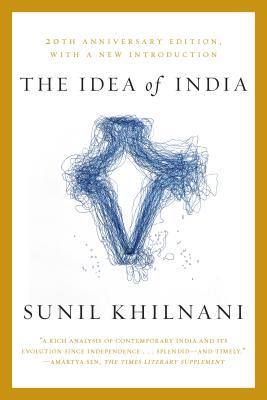A classic since it was first published in 1997, The Idea of India is a magisterial historical study that addresses the paradoxes and ironies of the world's largest democracy. When, in 1947, the British divided and departed their most prized imperial possession, they handed a huge, diverse, and poor society to a small nationalist elite. For decades this elite would uphold a political construct, an idea of India grounded in democracy, religious tolerance, economic development, and cultural pluralism. Sunil Khilnani investigates the fate of this idea, offering incisive portraits of Gandhi, Nehru, and other Indian founders and assessing the lively debates among them and their successors over who is an Indian, the meaning of modernity, and India's place in the world.
In a new introduction written for this edition, Khilnani reflects on the book's striking relevance to the country's recent developments--from the rise of a new billionaire class to the election of a government with a more exclusivist conception of Indian identity. Throughout, he provokes readers and illuminates a fundamental question as urgent now as ever: Can the original idea of India survive its own successes?
A classic since it was first published in 1997, The Idea of India is a magisterial historical study that addresses the paradoxes and ironies of the world's largest democracy. When, in 1947, the British divided and departed their most prized imperial possession, they handed a huge, diverse, and poor society to a small nationalist elite. For decades this elite would uphold a political construct, an idea of India grounded in democracy, religious tolerance, economic development, and cultural pluralism. Sunil Khilnani investigates the fate of this idea, offering incisive portraits of Gandhi, Nehru, and other Indian founders and assessing the lively debates among them and their successors over who is an Indian, the meaning of modernity, and India's place in the world.
In a new introduction written for this edition, Khilnani reflects on the book's striking relevance to the country's recent developments--from the rise of a new billionaire class to the election of a government with a more exclusivist conception of Indian identity. Throughout, he provokes readers and illuminates a fundamental question as urgent now as ever: Can the original idea of India survive its own successes?